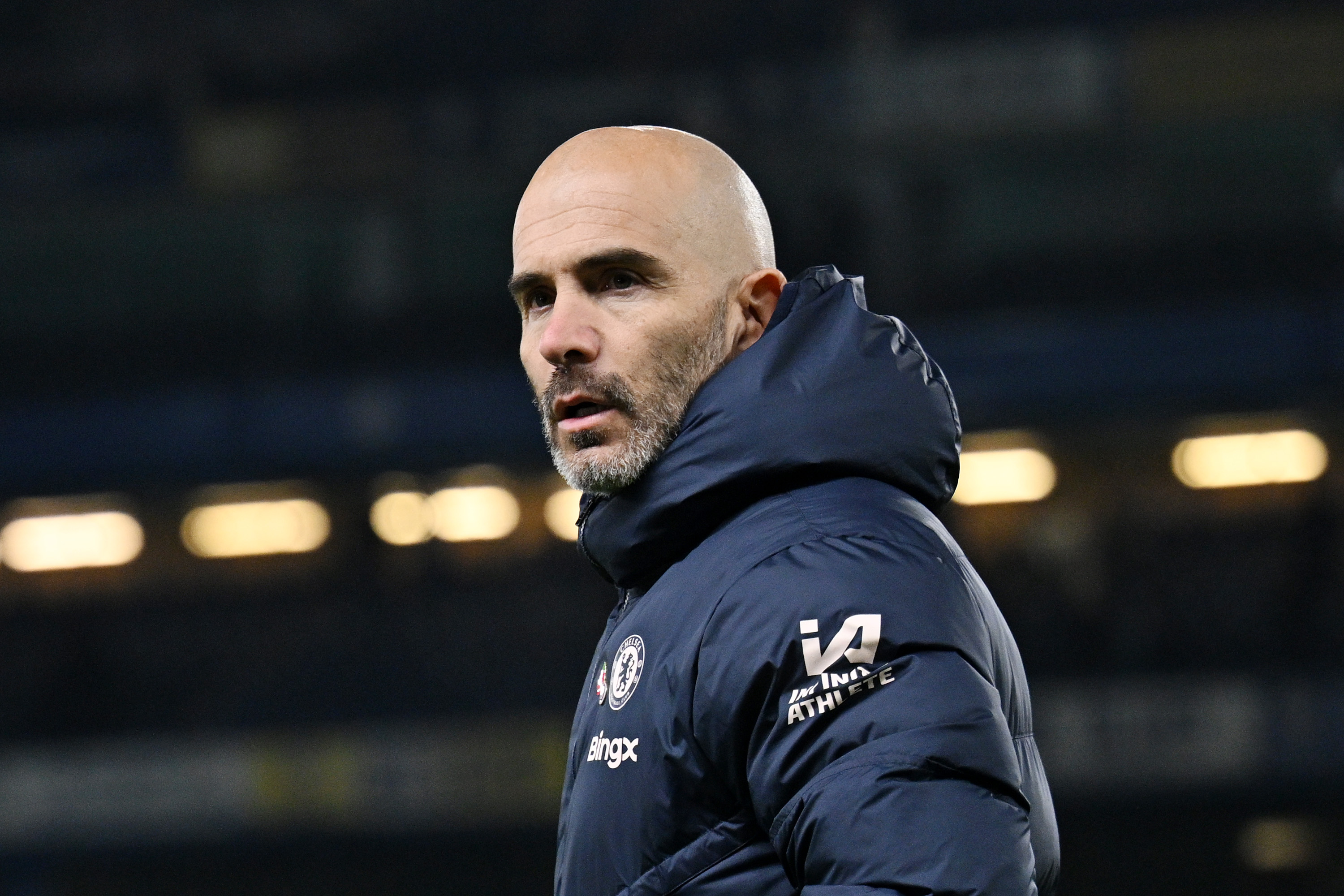How Greece broke the Euros in 2004
It’s 20 years since one of the greatest upsets in footballing history – Otto Rehhagel’s side may not have been hugely innovative, but they sure were unbelievably effective
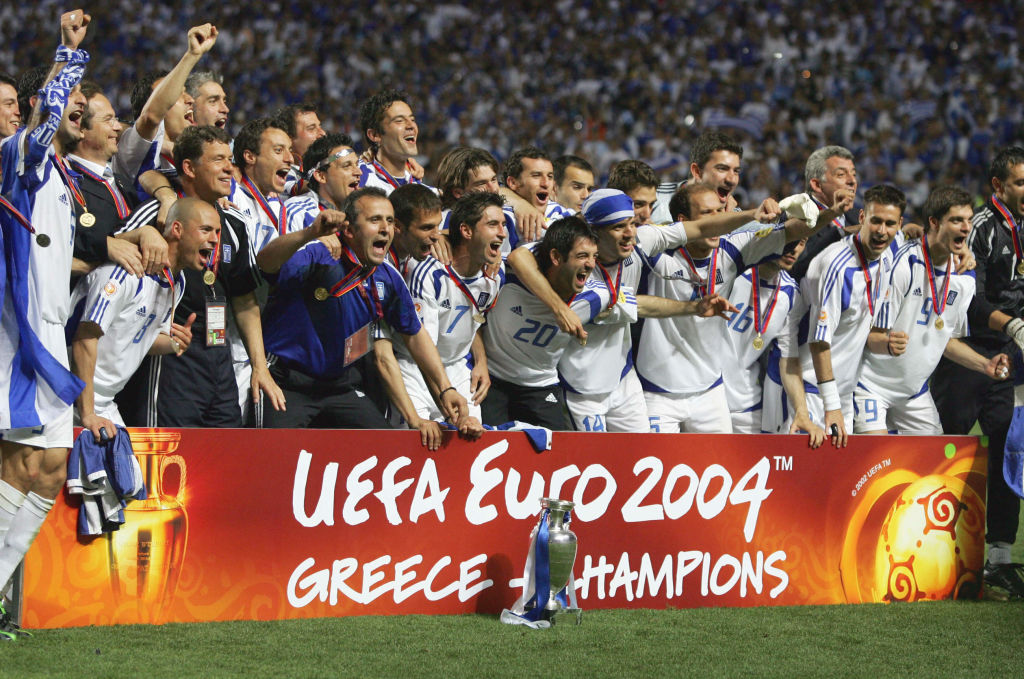
As likely evidenced by the fact you’ve just clicked on this article and audibly muttered, “Oh wow, yeah, Greece”, the memory of triumph at Euro 2004 is likely lodged in a very weird part of your brain. It absolutely did happen, of that you’re sure, but in the era before social media where every sporting happenstance wasn’t being endlessly shared, clipped, memed and remixed, you can’t recall it with any clarity.
All of the early noughties triumphs that involved major nations are clearly visible to you: Ronaldo’s silly haircut running riot for Brazil against Germany in 2002, Zinedine Zidane’s forehead attempting a living laryngoscopy on Marco Materazzi in 2006.
Not Greece. Angelos Charisteas’ winning goal in the final seldom makes the highlight reels, and Theo Zagorakis is more likely to be mentioned as a pub quiz answer than during a conversation about football greats, despite captaining his country to Euros glory.
That’s a tragedy – ironic, for the nation that birthed that very theatre genre. They also wrote maybe football’s best underdog story.
Greece at Euro 2004: The philosophy
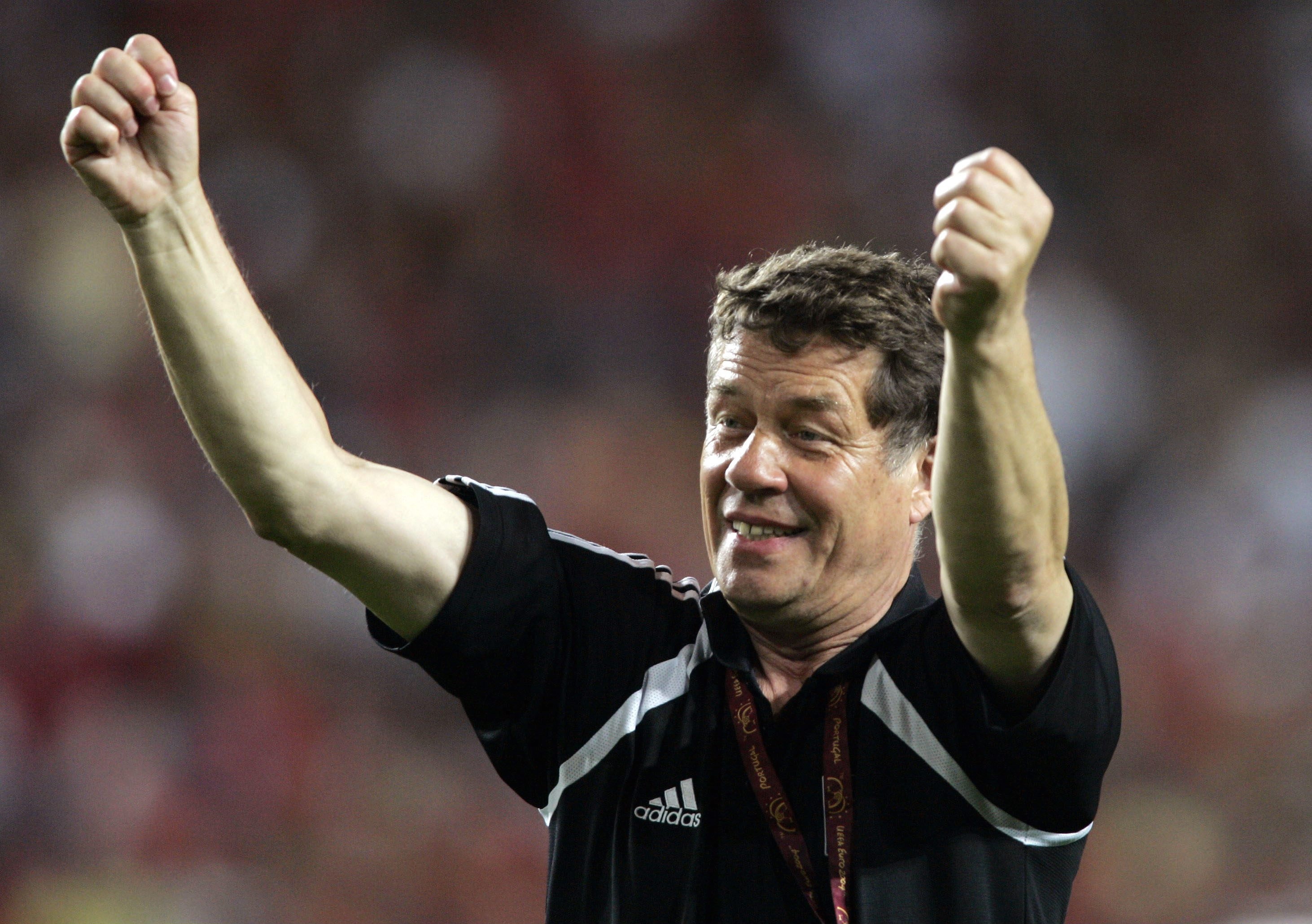
The approach of boss Otto Rehhagel wasn’t anything that was hugely ground-breaking. There wasn’t an ingenious new setup, or even a generational star to build a unique tactic around.
What ingenuity the side did have centred around defender Traianos Dellas – Greece’s system arranged themselves in such a way that he’d function as a centre-back without a specific man-marking job, allowing him to identify dangerous scenarios when out of possession and also more freely join in with the midfielders when in it.
Greece did that by alternating between a back four and a back five, depending on the opposition. In the group against Spain, who had Fernando Morientes as a lone striker, Dellas was partnered by Michalis Kapsis, who stuck diligently to the forward.
Get FourFourTwo Newsletter
The best features, fun and footballing quizzes, straight to your inbox every week.
In the quarter-final against France, who paired Thierry Henry and David Trezeguet, right-back Giourkas Seitaridis often moved into the centre – following Henry in from the flank – to share that responsibility.
Man-marking like that had all but vanished from top-level football several years prior, as the increased ability for attackers to rotate positions and find space exposed its obvious limitations. But by giving Dellas freedom to sweep behind, step forward and cover across when needed, opponents were flummoxed.
The architecture
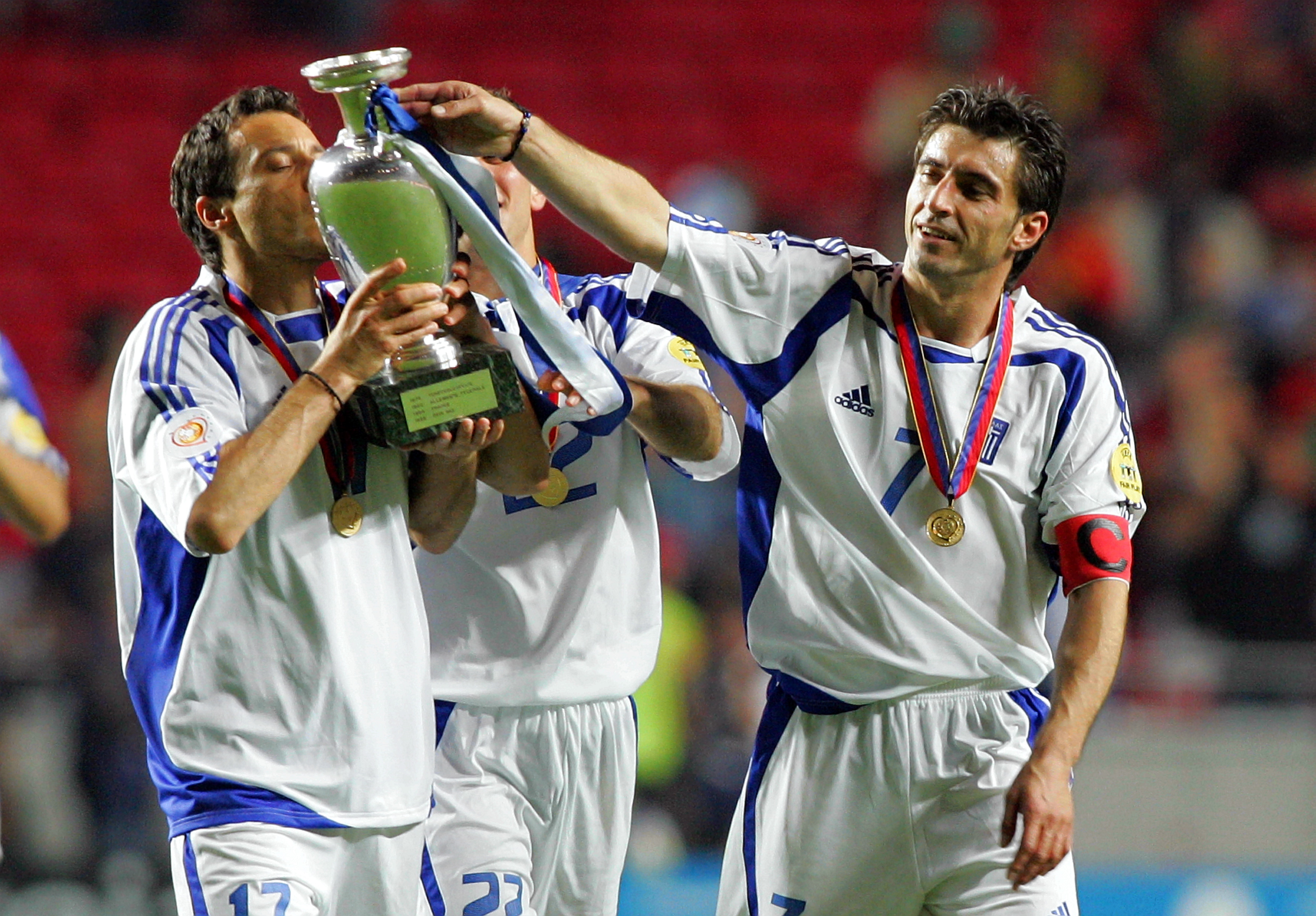
To suggest that Greece “weren’t a passing side” would be a huge understatement. But, equally, to deride them as negative or passive would be doing them a disservice of equal heft.
Rehhagel was well aware of his team’s limitations and had them organised in ways that masked their shortcomings on the ball. With no technically gifted midfielders or centre-backs entirely comfortable playing out, they’d routinely go long into central forward Zisis Vryzas or Charisteas out wide.
As the tournament progressed, they became increasingly efficient at convincing opponents they were looking to hold the ball up, coming slightly shorter and then flicking it into the space that opened up as a result. Stelios Giannakopoulos in particular became a potent weapon in that regard.
The one game where they really did try to keep the ball on the floor and play through their opponents was their final group game against Russia, which they lost 2-1. It cost themselves top spot in the group, ensuring they faced France rather than England in the last eight. They learned their lesson, though.
The theatre
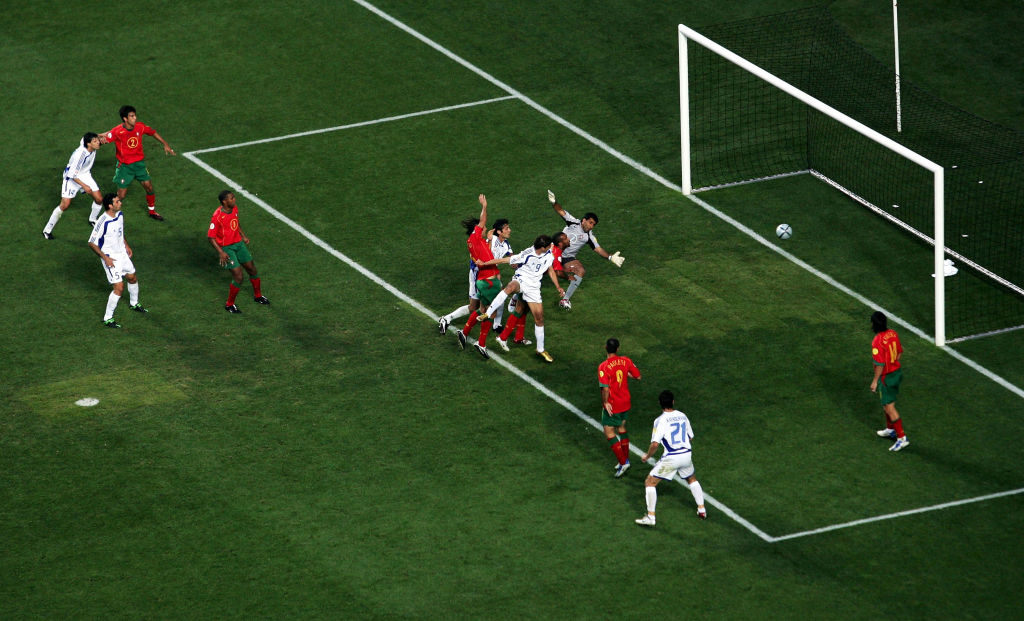
In the knockout stages, Greece refined their method and went all the way to the trophy, thanks to three pretty much identical 1-0 victories.
They’d keep things as tight as possible in the opening half, almost never committing players forward to open up space for their opponents. As the match wore on, they’d work opportunities to cross the ball, then use their superior size and strength against tiring players to nick a goal. From there, the shop’s doors, windows and shutters would quickly be closed again.
In the quarter-final against France, they kept Henry, Trezeguet, Zidane, Robert Pires and Louis Saha out, while Charisteas nodded in a cross just after the hour. Against the Czech Republic, Milan Baros, Jan Koller, Pavel Nedved and Tomas Rosicky attacked in vain, only for Dellas to head home an extra-time corner. Then in the final against Portugal, a near carbon-copy corner for Charisteas was enough to deny Cristiano Ronaldo, Luis Figo, Deco and Rui Costa.
Were they fortunate? Maybe. But a fluke? Absolutely not. Rehhagel made every star in the footballing cosmos align – that should be celebrated, not forgotten.
More stories ahead of Euro 2024
Two decades on, the European Championship will head to Germany. Find out how to watch all the games at the tournament, including details about every fixture this summer.
Squads are being announced on a daily basis, too, while each nation has revealed the kits they'll be wearing.
Adam published his first article for FourFourTwo in 2015, but didn’t publish his second until seven years later in 2022. A figure that would put him near the top end of any ranking for Longest Time Between Appearances For One Club. In the time between he plied his trade as both a writer and presenter on YouTube, earning the dubious distinction of being “The James Milner of WhatCulture”. Be that because he was capable of playing any role, or just because it felt like he’d been around forever, depends on who you ask. He left FourFourTwo as a full time staff member in February 2025

